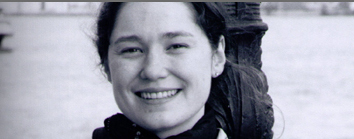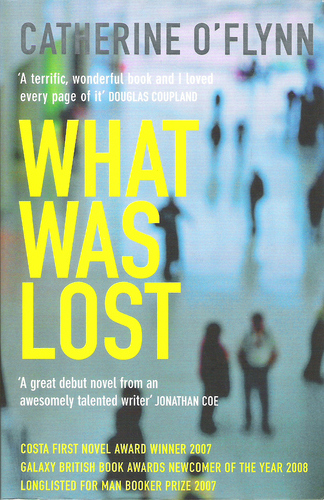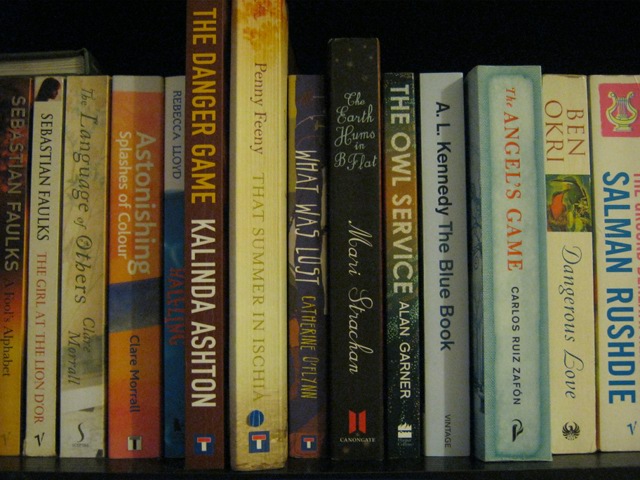An evening at Foyles Bookshop as part of Bristol Festival of Literature gives asiring author Judy Darley the chance to glean some submission advice, including never, ever, to send an oven glove with her manuscript…
It’s the holiest of holy trinities for the publishing world: writer, literary agent and editor. Or, to put it into more meaningful terms perhaps: writer + literary agent + editor = success.
So it felt a bit daunting to encounter the trio of Catherine O’Flynn (author of the absorbing What Was Lost), Lucy Luck of Lucy Luck Associates and Senior Agent at Tindal Street Press, Luke Brown. To ramp up the excitement further, Luke is also in charge of publicity at Tindal Street – yep, he’s the person I had to contact to get hold of the rather fetching picture of him with Catherine shown above.
Add these ingredients to a Foyles Bookshop packed with aspiring writers, and it’s remarkable the crowd didn’t degenerate into baying, salivating mayhem. Instead most of us politely took our seats and took diligent notes throughout.
 I did manage to steal a few moments with Catherine and Lucy (pictured left) beforehand, just enough time to discover that What Was Lost wasn’t just Catherine’s first book, but the first thing she’d really written. I commented on how much I love the scale of the book, the way it encompasses two very different times and three very different voices. She laughed and mentioned that it was utterly unwieldy initially, requiring a lot of work.
I did manage to steal a few moments with Catherine and Lucy (pictured left) beforehand, just enough time to discover that What Was Lost wasn’t just Catherine’s first book, but the first thing she’d really written. I commented on how much I love the scale of the book, the way it encompasses two very different times and three very different voices. She laughed and mentioned that it was utterly unwieldy initially, requiring a lot of work.
Lucy nodded: “It wasn’t just Kate [I assume that she means Catherine here, though the protagonist of What Was Lost happens to also be called Kate], though it was, of course, in a large part Kate.”
 And there it is, evidence of the intense teamwork involved in producing a saleable work – teamwork that’s never, if done skilfully, visible from the outside.
And there it is, evidence of the intense teamwork involved in producing a saleable work – teamwork that’s never, if done skilfully, visible from the outside.
I pushed my luck and asked Lucy what it was about Catherine’s book that made her want to represent it, but she shook her head at me and gave me the equivalent of ‘wait and see’, so I meekly took my seat.
The discussion began, peeling back the layers of this crucial relationship – from Catherine writing the book while living in Spain and sending off ten manuscripts to the first ten agents on her list (“I took it to the post office in Barcelona and was shocked by the cost. Then they told me that was the price of sending just one, so it actually cost ten times as much. The price of vanity!”
Finally Lucy got into the question I had asked her earlier, telling us how she felt when she began to read What Was Lost, then called Static.
“I read a lot of submissions. I need something to chime – a certain voice, where I don’t see the author at all, I don’t see how difficult this was to write. I’m just in this world with this character. And I want to read on. If I love it, I can see other people loving it too.”
She expanded on this, saying of Kate in What Was Lost: “She was such a feisty, vulnerable, brilliant creation. There were moments of such wisdom in the humour and sadness.”
Catherine talked about the challenges of trusting a complete stranger to help you improve your book – to have the faith that if you do what they ask it will improve and not destroy the story you’ve been carrying in your head for years.
After six months of editing, Lucy started sent the book out to four editors, with an outcome of “two really positive rejections, one not so positive and one no reply.”
Then Tindal Street came into the picture.
“It was incredibly funny, incredibly sad, incredibly well conceived,” Luke said of the manuscript. “While larger publishers like Bloomsbury and Simon & Schuster might have had problems with the fact it was a challenge to pigeonhole, to Tindal Street that was a strength.”
Then he offered the advice I was poised, pen in hand, for: “Go for younger agents, because they’re hungrier. Behave like an agent – do your research.”
Lucy agreed and added: “No oven gloves. I got an oven glove in the post the other day, because ‘this book’s too hot to handle.’” She cringes visibly. “It was all over Twitter as well, because ten other agents had received them too. And it wasn’t even a nice oven glove!”

